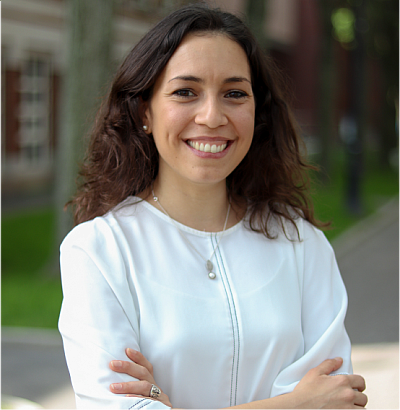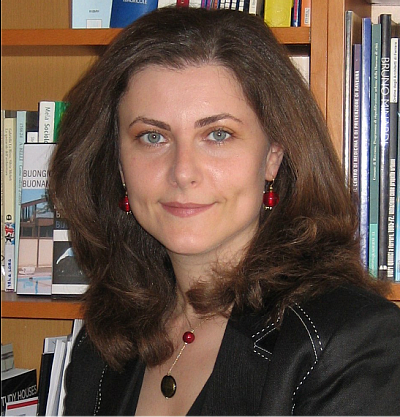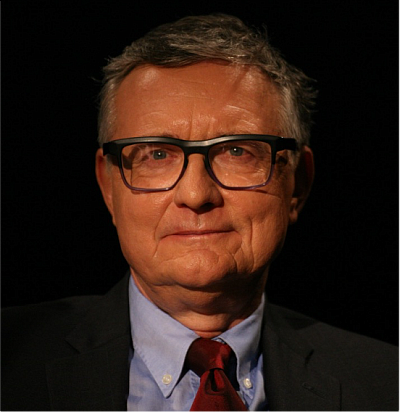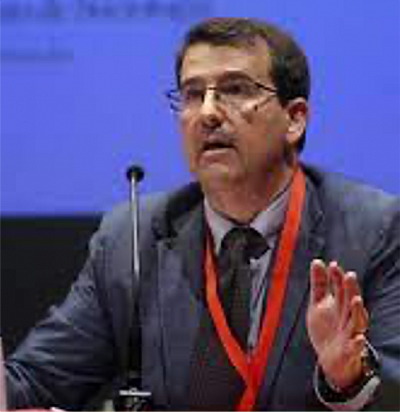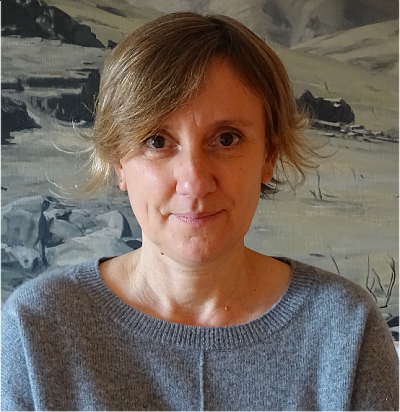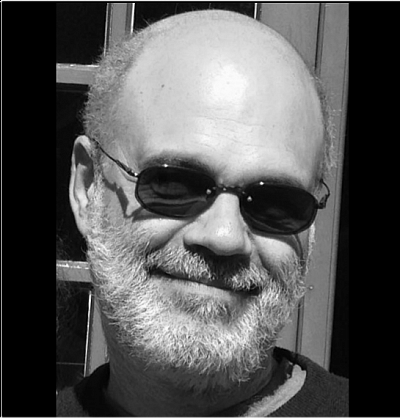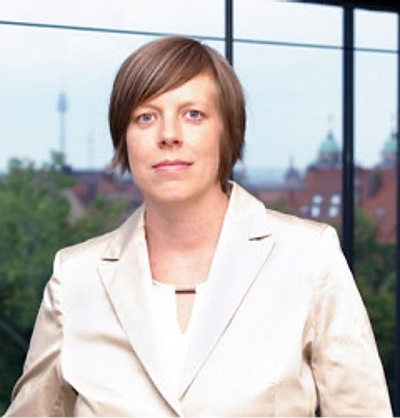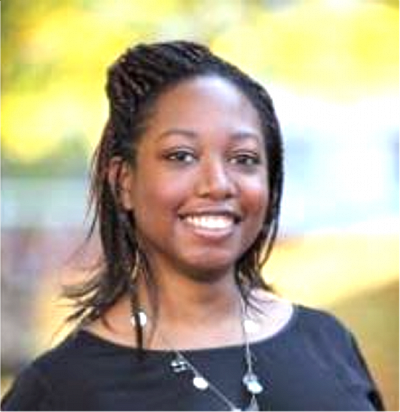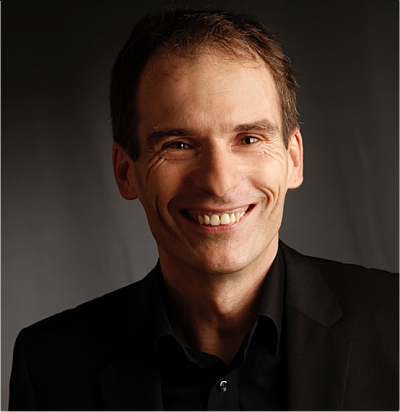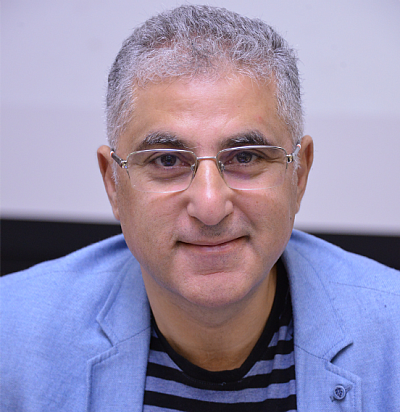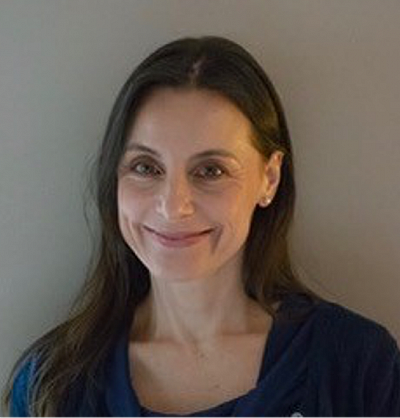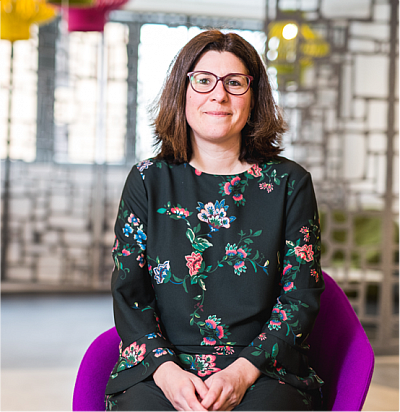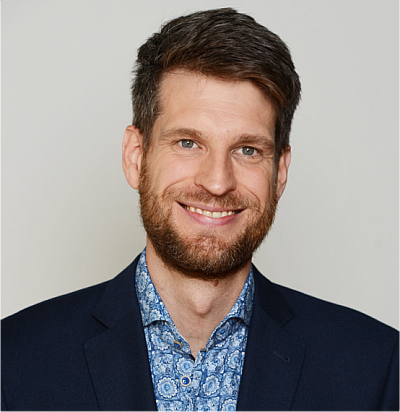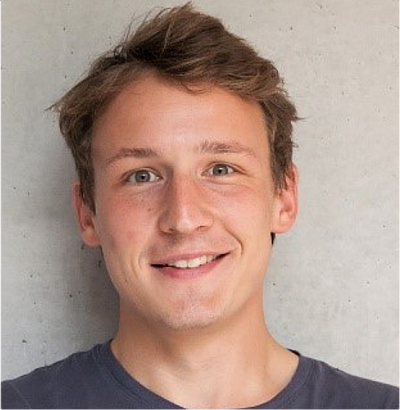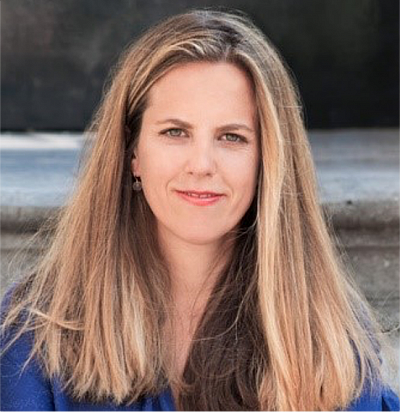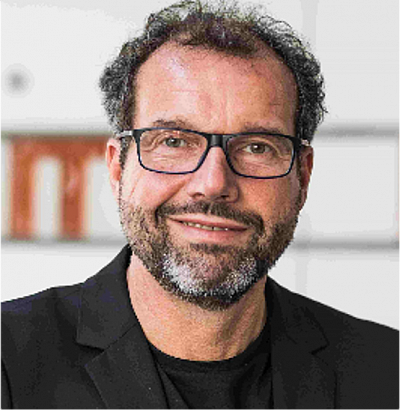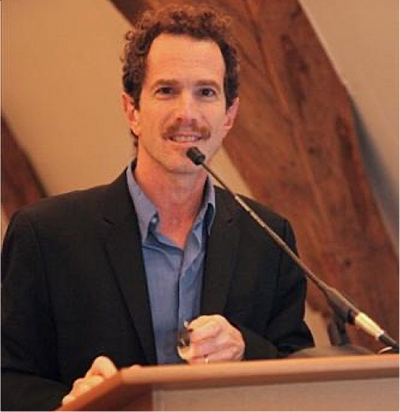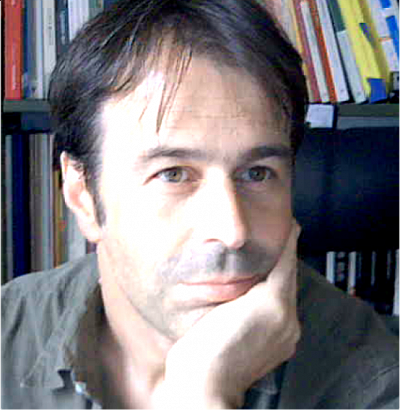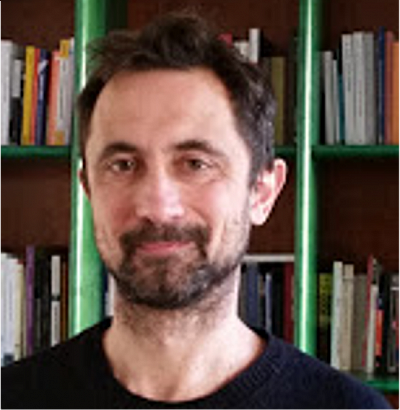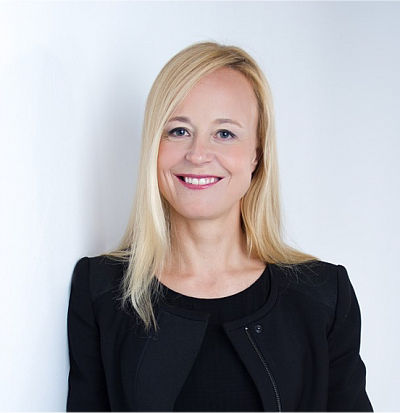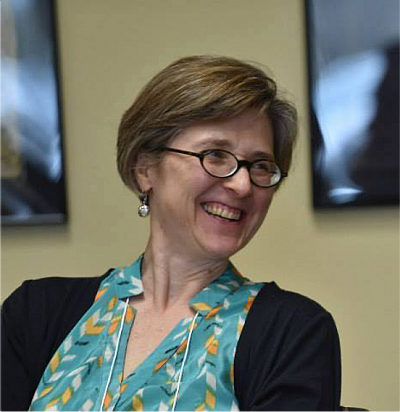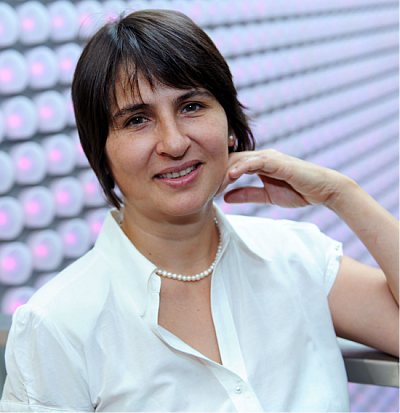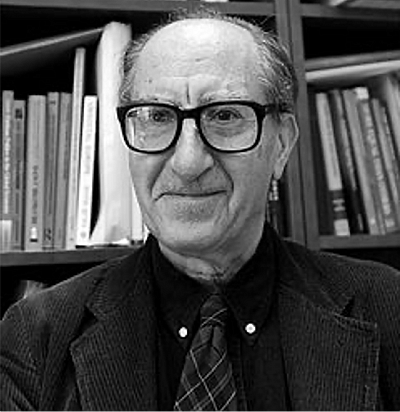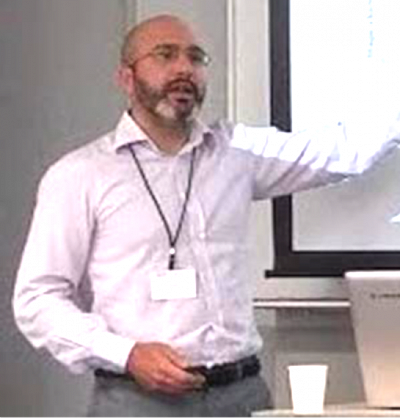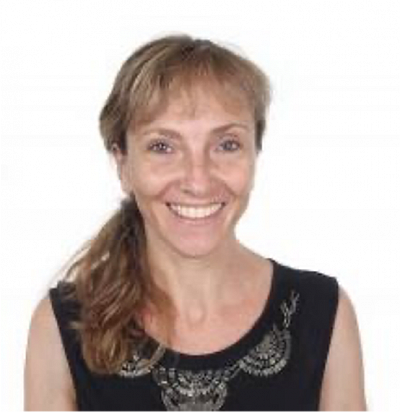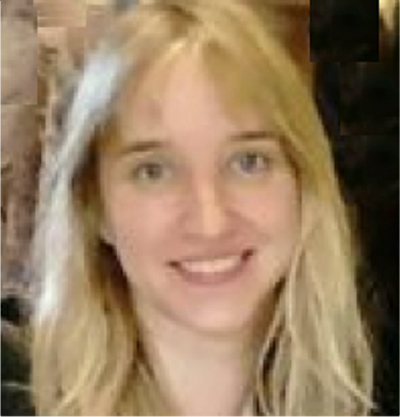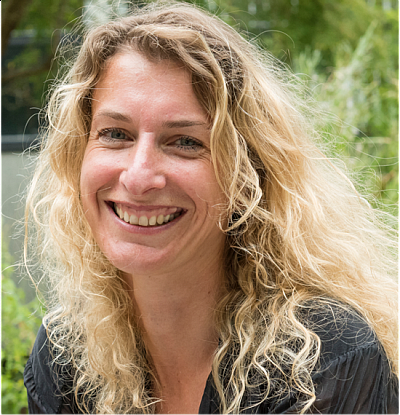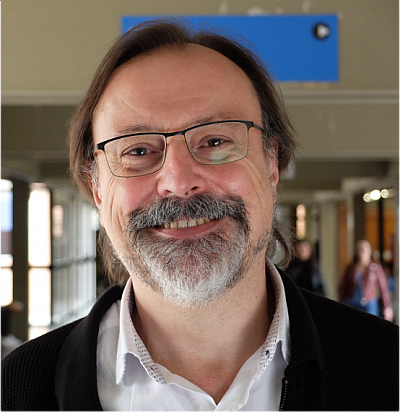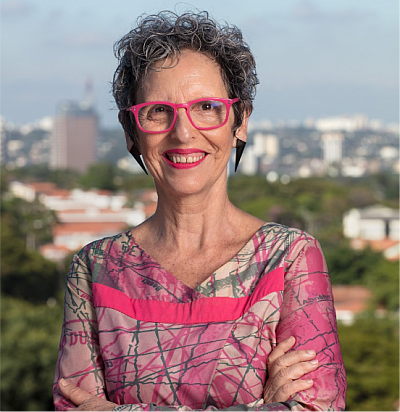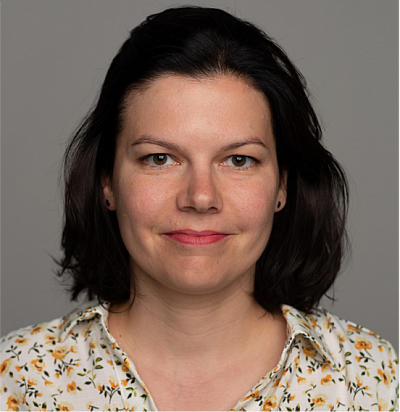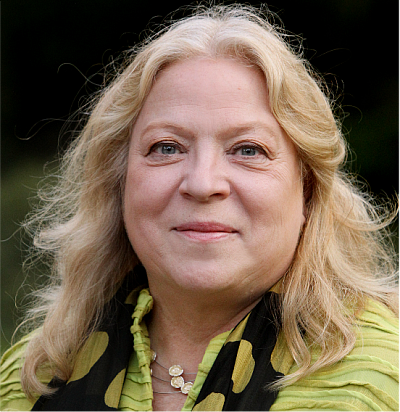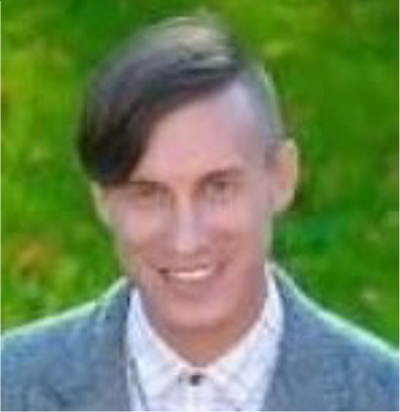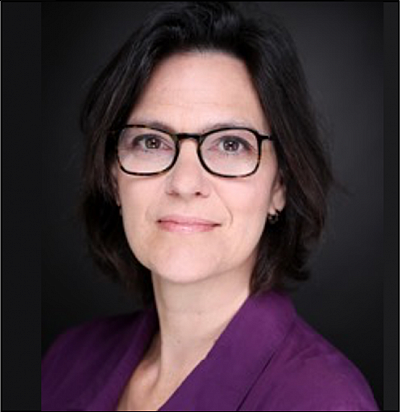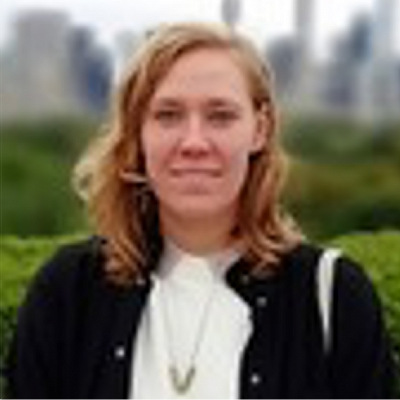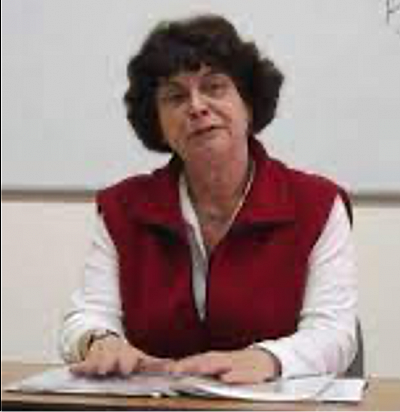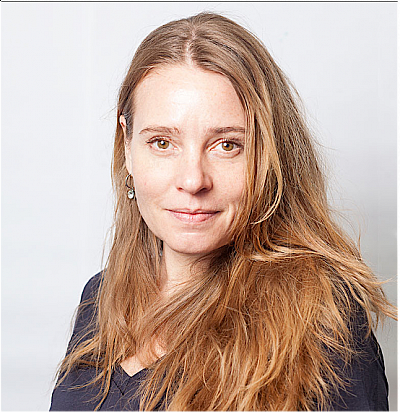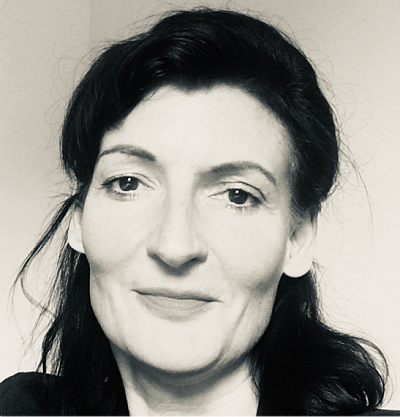Semi-Plenary Speakers
Emilia Aiello | Harvard Kennedy School, USA
Semi-Plenary 06: "Sociology Transforming Science and Society"
Emilia Aiello, PhD, is EU Marie Sklodowska-Curie Post-doctoral fellow at the Ash Center for Democratic Governance and Innovation, at the Harvard Kennedy School, and at the Department of Sociology at Universitat Autònoma de Barcelona (UAB). She is also research affiliate of the UAB Group of Ethnic Studies and Migration (GEDIME), and member of the Community of Researchers on Excellence for All (CREA). Emilia’s research interests are focused on how the most vulnerable social groups organize at the grassroots level to overcome inequalities and gain social and political power. Her scientific and personal concern also focuses on uncovering the ways to maximize the social impact of all types of scientific research, better connecting scientific interests and outputs to societal needs. She collaborates with the Spanish organization “Ciencia en el Parlamento”, and with the Drom Kotar Mestipen Roma Association of Women.
Luisa Bravo | University of Florence, Italy
Semi-Plenary 07: "Public Spaces after Covid-19: Building Alternative Knowledges for the Future"
Luisa Bravo is Adjunct Professor in Urban Design at the University of Florence in Italy and Guest Researcher at KTH Royal Institute of Technology, Centre for the Future of Places in Sweden. She has more than 15-years experience in the professional field as urban planner and designer with a specific focus on public space. Her expertise is grounded in extensive academic postdoctoral research and teaching in Italy and Europe, the United States, Middle East, Asia and Australia.
With her non-profit organization City Space Architecture, that she founded in 2013 she has organized and curated international conferences, seminars, workshops and exhibitions aimed at promoting public space culture, through an interdisciplinary approach, involving art and architecture. Luisa is the Founder and Editor in Chief of 'The Journal of Public Space', the first, international, interdisciplinary, academic, open access journal entirely dedicated to public space, that she established through City Space Architecture in 2015, in partnership with UN-Habitat.
In 2020 Luisa launched the online initiative ‘2020: A Year without Public Space under the COVID-19 Pandemic’, in cooperation with the School of Architecture at The Chinese University of Hong Kong, and organized 20 webinars across five months, engaging more than 100 speakers globally, and a final two-day symposium in November.
Grzegorz Ekiert | Harvard University, USA
Semi-Plenary 11: "The Rise of Authoritarianism in Central Eastern Europe"
Grzegorz Ekiert is Laurence A. Tisch Professor of Government at Harvard University, Director of the Minda de Gunzburg Center for European Studies, and Senior Scholar at the Harvard Academy for International and Area Studies. His research and teaching interests focus on comparative politics, regime change and democratization, civil society and social movements and East European politics and societies. His books include: Ruling by Other Means: State-Mobilized Movements, (co-editors Elizabeth J. Perry and Yan Xiaojun), Cambridge University Press, 2020; Capitalism and Democracy in Central and Eastern Europe: Assessing the Legacy of Communist Rule, (co-editor Stephen Hanson), Cambridge University Press 2003; Rebellious Civil Society. Popular Protest and Democratic Consolidation in Poland, (co-author Jan Kubik, Rutgers University) University of Michigan Press 1999; The State Against Society: Political Crises and Their Aftermath in East Central Europe, Princeton University Press 1996. His papers appeared in numerous social science journals in the US, Europe and Asia and in many edited volumes.
Manuel Fernandez-Esquinas | President of the Spanish Sociological Federation (FES) & Coordinator of ESA's RN “Southern European Societies", Spain
Semi-Plenary 13: "The public role of National Sociological Associations towards alternative futures"
President of the Spanish Sociological Federation (FES) and Coordinator of the Research Network “Southern European Societies” of the European Sociological Association.
He is a Research Scientist at the Institute for Advanced Social Studies (IESA), an official centre of the Spanish National Research Council (CSIC), and has been a visiting fellow at Southbank University (UK), the University of Wollongong, Western Sydney University (Australia), Indiana University and the University of New Mexico (USA). He has worked on values and behaviors related to innovation, mainly using survey methodology; on science and innovation policies, several forms of knowledge transfer between science and industry, research training, and collaboration dynamics of universities and research centers with other domains. He has been working on the ”institutional quality” of innovation systems and on knowledge transfer and knowledge utilization, with a special focus on the social sciences. He has also worked as evaluator and consultant for the Spanish Ministry for Science and Innovation, several regional governments and international organizations such as OECD and the EU. He is the director of Revista Española de Sociología/Spanish Journal of Sociology, and the editor of the new book series “Southern European Societies” (Edward Elgar)
Claudia Finotelli | Universidad Complutense de Madrid, Spain
Semi-Plenary 03: "Social Research and Social Justice in the Study of Migration Towards Southern Europe"
Claudia Finotelli holds a Ph.D. in Political Science from the University of Münster (Germany) and is currently Associate Professor at the Department of Applied Sociology of the Universidad Complutense de Madrid. Her research interests cover the areas of migration control and citizenship with a special focus on Southern Europe. With MariaCaterina La Barbera, she is PI of the Research Project “The subjective dimension of citizenship: conceptions, juridical practice and individual strategies in Italy and in Spain” (CIVITES) funded by the Spanish Ministry of Science and Innovation (2020-2023). She is currently editing together with Irene Ponzo a book for Springer on migration control logics and strategies in Europe.
Heitor Frúgoli Jr. | University of São Paulo, Brazil
Semi-Plenary 07: "Public Spaces after Covid-19: Building Alternative Knowledges for the Future"
Heitor Frúgoli Jr. is Associate Professor of the Department of Anthropology of the University of São Paulo, (USP) (currently Head of Department) and coordinator of Anthropology of the City Study Group (GEAC-USP). He was visiting professor at University of Leiden (2010) and directeur d’études at École des Hautes Études en Sciences Sociales (Paris, 2013). He is CNPq (National Council for Scientific and Technological Development) researcher since 2005. Educational background: Visiting Scholar, University Institute of Lisbon (ISCTE-IUL) (2011); Ph. D., University of São Paulo, USP (Sociology) (1998); Visiting Scholar, University of California, San Diego (1995-1996); M. A., University of São Paulo, USP (Anthropology) (1990). He is the author, among other books, of Sociabilidade urbana (Zahar, 2007), Centralidade em São Paulo (Edusp, 2000) and São Paulo: espaços públicos e interação social (Marco Zero, 1995).
Christiane Gross | University of Würzburg, Germany
Semi-Plenary 15: "Quantitative Surveys Against the Climate and Health Crises of Today"
Christiane Gross is Professor of Quantitative Methods in the Social Sciences at the University of Würzburg. After studying sociology in Augsburg and Munich (LMU), she worked at the universities in Munich (LMU), Kiel, Erlangen-Nuremberg, and Hanover, as well as being interims professor at the University of Konstanz. She has also worked on several projects funded by the German Research Association (DFG) and the Federal Ministry of Education and Research (BMBF). Her dissertation thesis at the CAU Kiel was awarded the Faculty Prize. She is elected representative of the empirical social, behavioral, and economic sciences in the German Data Forum (RatSWD) in its seventh appointment period. Her research and teaching interests include quantitative methods and social stratification in education, work, and health.
Toni Haastrup | University of Stirling, UK
Semi-Plenary 02: "Alternative Futures Beyond Neoliberalism: Inside and Outside of the European Union"
Toni Haastrup is a Senior Lecturer in International Politics at the University of Stirling, Scotland, UK. Her research interests are broadly in the area of Global Governance of Security, particularly the practices of the African and European Unions. Her research uses critical feminist lenses to understand the foreign policy practices of both institutions, and she has published widely in this area. Additionally, Haastrup teaches on themes of European security, contemporary global security challenges, crisis in Europe and feminist international politics. She is currently joint Editor in Chief of JCMS: Journal of Common Market Studies, and an occasional media commentator.
Markus Hadler | University of Graz, Austria
Semi-Plenary 15: "Quantitative Surveys Against the Climate and Health Crises of Today"
Markus Hadler is Professor of Social Research at the Department of Sociology, University of Graz, Austria. Before that he held positions at Marshall University (USA) and Macquarie University (Australia). He is an Austrian representative to the International Social Survey Programme (ISSP) and was the convener of the 2020 ISSP survey on environmental attitudes and behaviors. His research focuses on topics of environmental sociology and social inequality with an emphasis on research methods. Currently, he is leading three research projects: measuring CO2 relevant behavior using survey research; connecting social survey and social media data on climate related views; and a S-LCA of a carbon-emission reducing production process in a steel factory. His teaching interests include quantitative methods, environmental sociology, and social stratification.
Sari Hanafi | American University of Beirut, Lebanon and President of the International Sociological Association
Semi-Plenary 06: "Sociology Transforming Science and Society"
Semi-Plenary 13: "The public role of National Sociological Associations towards alternative futures"
Sari Hanafi is currently a Professor of Sociology, Director of Center for Arab and Middle Eastern Studies and Chair of the Islamic Studies program at the American University of Beirut. He is the President of the International Sociological Association. Recently he created the “Portal for Social impact of scientific research in/on the Arab World” (Athar). He was the Vice President of the board of the Arab Council of Social Science. He is as well editor of Idafat: the Arab Journal of Sociology (Arabic) Among his recent books are: The Oxford Handbook of the Sociology of the Middle East, Knowledge Production in the Arab World: The Impossible Promise. (with R. Arvanitis). He is the winner of 2014 Abdelhamid Shouman Award and 2015 Kuwait Award for social science. In 2019, he was awarded an Honorary Doctorate (Doctor Honoris Causa) of the National University of San Marcos (the first and the leading university in Lima- Peru – established in 1551). (His website: https://sites.aub.edu.lb/sarihanafi/)
Marta Herrero | University of Sheffield, UK
Semi-Plenary 14: "Artmaking and Economy in Time of Crises"
Dr Marta Herrero is Lecturer in Creative Industries Management at the University of Sheffield, Management School where she teaches on Fundraising Management in the culture sector. She is the author of Irish Intellectuals and Aesthetics. The Making of a Modern Art Collection (Irish Press, 2008) and co-editor of Art and Aesthetics (Routledge, 2013). She is also the author of numerous articles on the sociology of art, art museums, art markets and fundraising.
Nikoleta Jones | University of Cambridge, UK
Semi-Plenary 16: "Knowledge, Religions and Environmental Change"
Nikoleta Jones is an Associate Professor at the University of Warwick (starting July 2021). She is an environmental social scientist, and her work focuses mainly on social impacts of environmental policies and improving the levels of public acceptance for policy initiatives. In recent years, she has become increasingly interested in assessing social impacts of biodiversity conservation policies. She is currently leading the project FIDELIO funded by a European Research Council Starting Grant (2019-2024, €1.5m) exploring social impacts of European Protected Areas focusing on their temporal and spatial dimensions.
Jens Köhrsen | Basel University, Switzerland
Semi-Plenary 16: "Knowledge, Religions and Environmental Change"
Jens Koehrsen (Köhrsen) is professor of religion and economics at University of Basel’s Centre for Religion, Economy and Politics. His research interests include the sociological study of climate change and sustainability transitions, the relationship between social inequality and religion, as well as religion and sustainable development. He is the principal investigator of the Swiss National Science Foundation project “Urban Green Religions” that explores the role of religion in urban sustainability transitions.
Florian Kley | Institute of Sociology at Leipzig University, Germany
Semi-Plenary 05: "Covid-19, Fiscal European Solidarity and the Future of Europe"
Florian K. Kley is a researcher at the Institute of Sociology at Leipzig University, Germany, and currently working as a researcher in the DFG-Project Changing middle class: A comparison of Germany and the US. Previously, he was a researcher in the HORIZON 2020-Project, Solidarity in European Societies: Empowerment, Social Justice and Citizenship (SOLIDUS). His main research fields are European social integration, social stratification research, and quantitative data analysis. Among his publications are ‘Contemplating the Eurozone crisis: are European citizens willing to pay for a European solidarity tax? Evidence from Germany and Portugal’ (European Societies, 2020, with H. Lengfeld and J. Häuberer); ‘European Solidarity in Times of Crisis. Insights from a Thirteen-Country Survey’ (Routledge, 2019, with J. Gerhards, H. Lengfeld, Z. S. Ignácz, and M. Priem).
Theresa Kuhn | University of Amsterdam, The Netherlands
Semi-Plenary 05: "Covid-19, Fiscal European Solidarity and the Future of Europe"
Theresa Kuhn is Associate Professor in Political Science at the University of Amsterdam where she is also co-director of the faculty research priority area Amsterdam Center for European Studies and leader of the programme group Challenges to democratic representation. After obtaining her PhD from the European University institute in Florence, she was a Postdoc Fellow at Nuffield College, University of Oxford and at the chair of macro sociology, Freie Universität Berlin. She works on questions of European integration and solidarity, using comparative survey and experimental methods. Her research has been published in numerous renowned international journals. In 2015 she published an award winning monograph on “Experiencing European Integration. Transnational Lives and European Identity” at Oxford University Press. Together with other colleagues, she just received a large research grant by the Volkswagen foundation to study the effect of COVID19 on Euroscepticism, solidarity and vote choice.
Holger Lengfeld | Institute of Sociology at Leipzig University, Germany
Semi-Plenary 05: "Covid-19, Fiscal European Solidarity and the Future of Europe"
Holger Lengfeld is Professor of Sociology at the Institute of Sociology at Leipzig University, Germany, and Research Fellow at the German Institute of Economic Research Berlin. His research focuses on social stratification, inequality, and European social integration. Among his publications are ‘Modernization Losers’ Revenge? Income Mobility and Support for Right- and Left-Wing Populist Parties in Germany’ (European Sociological Review, 2021, with J. Hartmann and K. Kurz); ‘Contemplating the Eurozone crisis: are European citizens willing to pay for a European solidarity tax? Evidence from Germany and Portugal’ (European Societies, 2020, with F. K. Kley and J. Häuberer); ‘European Solidarity in Times of Crisis. Insights from a Thirteen-Country Survey’ (Routledge, 2019, with J. Gerhards, Z. S. Ignácz, F. K. Kley, and M. Priem).
Paul Lichterman | University of Southern California, USA
Semi-Plenary 09: "Civic Action: Creating and Living Alternative Futures"
Paul Lichterman currently is Professor of Sociology and Religion at the University of Southern California. A cultural sociologist and ethnographer of public life, he has studied participation in a variety of social movement efforts, religious volunteer groups, and professional NGOs. He has been honored with disciplinary awards for his articles in premier journals and his two monograph books, The Search for Political Community: American Activists Reinventing Commitment and Elusive Togetherness: Church Groups Trying to Bridge America’s Divisions. His forthcoming book, How Civic Action Works: Fighting for Housing in Los Angeles (Princeton University Press, 2021) offers a new, pragmatist-inspired framework that illuminates how social advocates construct the claims, relationships and strategies that drive collective action.
Marcello Maneri | University of Milano Bicocca, Italy
Semi-Plenary 03: "Social Research and Social Justice in the Study of Migration Towards Southern Europe"
Marcello Maneri is Associate Professor of Sociology at the University of Milano Bicocca where he teaches Media and Cultural sociology. His research focuses on the media and power, especially on news about migration, on racism, public discourse on crime and security, moral panics. With Ann Morning, he is currently publishing a book for Russell-Sage on the notions of cultural and biological difference of descent-based groups in Italy and the United States.
Antonio Maturo | Università di Bologna, Italy
Semi-Plenary 08: "Covid-19 in the City: Building Positive Futures"
Antonio Maturo is a medical sociologist and Professor at Bologna University. His latest books are Digital Health and the Gamification of Life, Emerald, 2018 (with Veronica Moretti) and Good Pharma, Palgrave, 2015 (with Donald Light) and among his publications on Covid: Unhome Sweet Home: The Construction of New Normalities in Italy during COVID-19, in Lupton D., Willis K. (eds) The Coronavirus Crisis: Social Perspectives, Routledge (with Veronica Moretti). He has edited two volumes of the journal Salute e Società: The Medicalisation of Life, 2009 (with Peter Conrad) and Medicine of Emotions and Cognitions, 2012 (with Kristin Barker). At Bologna University, Antonio is the Chair of the PhD Programme in Sociology and responsible for the Unit for the Horizon2020 “Oncorelief” Project. Moreover, he has taught Medical Sociology for five years at Brown University, USA. Antonio is proud to have been one of first Erasmus students, at the Katholieke University of Leuven, in the distant 1989/1990.
Katharina Miller | European Women Lawyers Association (EWLA)
Semi-Plenary 01: "Yes Means Yes Only With Freedom to Consent"
Katharina Miller is the President of the European Women Lawyers Association (EWLA) and a member of the Commission on European Union Law and International Law of the German Association of Women Jurists (DJB). She holds a degree in Economics and Law (University of Greifswald, 2004 and 2006) and a master's degree in European Union Law (Universities of Luxembourg and Strasbourg, 2007). She is a Non-Executive Member of various corporate boards with extensive legal experience and with expertise in Compliance & Ethics and Women Rights, being a qualified lawyer in Germany and Spain. She is known by the Boards of Directors of the IBEX35 for her impulse in the management of gender diversity in the boards of directors and the economic and social empowerment of women. She is Delegate for Spain and the EU to the W20 and Advisory Board Member for the Berkeley Center on Comparative Equality and Anti-Discrimination Law.
Ann Mische| University of Notre Dame, USA
Semi-Plenary 09: "Civic Action: Creating and Living Alternative Futures"
Ann Mische is an Associate Professor of Sociology and Peace Studies at the University of Notre Dame. Currently, she is working on a book on the role of futures thinking and foresight methodologies in social and political change efforts focused on democracy, development, peacebuilding and climate change. She is also working on a separate project on the political trajectories of anti-partisan protest cycles in the global protest wave since 2008. Her first book, Partisan Publics: Communication and Contention Across Brazilian Youth Activist Networks, examined civic and political networks of Brazilian youth activism during the re-democratization period. She has also written theoretical articles on agency, culture, networks, temporality, and social interaction.
Beáta Nagy | Corvinus University of Budapest, Hungary
Semi-Plenary 04: "The Future of Gender Equality in Post-Pandemic Societies"
Beáta Nagy, PhD is professor at the Institute of Communication and Sociology at Corvinus University of Budapest. Her main research field is gender and work. She is the co-director of the Gender and Cultural Centre at her university, and board member of the European Consortium for Sociological Research (ECSR).
She has published articles in both Hungarian and English journals, such as Gender in Management: An International Journal; Gender, Work and Organization. Beáta published a book on the lack of female students in IT and technology in 2015. She has recently co-edited a special issue on ‘Work-life balance/imbalance: individual, organizational and social experiences’ for the journal Intersections. East European Journal of Society and Politics, and a special issue on ‘Leveraging cooperation for gender equality in management’ for the journal European Management Review.
Her latest research dealt with the work-life balance, and also with the time teenagers and their parents spend together with special attention to digital technology. The present qualitative research investigated the situation of mothers during the COVID-19 quarantine In Hungary and in Romania in cooperation with Réka Geambasu, Orsolya Gergely and Nikolett Somogyi.
Vicenç Navarro | Universitat Pompeu Fabra, Spain
Semi-Plenary 06: "Sociology Transforming Science and Society"
Dr Vicente Navarro is professor of Public Policy at Johns Hopkins University, Baltimore and is also Emeritus Professor of Political and Social Sciences at the Pompeu Fabra University in Barcelona, he is also the Founding Director of the JHU-UPF Public Policy Center. He has published more than 40 books, translated into different languages, as well as having published more than 400 articles in peer reviewed scientific journals. He is one of the most frequently cited scholars in the Scientific International Literature. He has been advisor to many international agencies such as the UN, ILO and many governments in developed and developing countries. His area of work is on political economy and social science, focusing very much on the economic, political, and social determinants of quality of life on both sides of the North Atlantic.
Nicola Pensiero | Southampton University, UK
Semi-Plenary 12: "Discussing the Effects of the Lockdown: The Expansion of Remote Work and Inequalities in Home Learning"
Nicola Pensiero is a lecturer in quantitative education and social science at Southampton University School of Education. Previously he worked at UCL Institute of Education, where he joined in 2013 after completing his PhD at the European University Institute. He is an interdisciplinary researcher with a good record of leading externally funded education research projects. His expertise lies in the use of analytical and choice-based approaches in studying social phenomena such as education programme effectiveness, comparative analysis of the effectiveness of education system characteristics, inequality in educational attainment, school segregation and income inequality. His current research includes studies on the role of individual decision-making mechanisms in shaping educational inequality by social origins and school segregation. He is also conducting a cross-national study on the effect of upper secondary education system characteristics on skills levels and inequality.
Lidia Puigvert | University of Barcelona, Spain
Semi-Plenary 01: "Yes Means Yes Only With Freedom to Consent"
Lídia Puigvert is professor of Sociology at the University of Barcelona, and Affiliated member of the Centre for Community, Gender and Social Justice at the Institute of Criminology, University of Cambridge. She is a feminist author internationally known for her theoretical contribution to dialogic feminism and to the prevention of gender based violence. She is co-author of the book “Women and social transformation” with Judith Butler and Elisabeth Beck-Gernsheim, besides many publications in top-ranked journals such as Violence Against Women or Journal of Mixed Methods Research. She has participated in research funded under the European Commission Framework Programme (FP5, FP6, and FP7) and most recently in the H2020 project PROTON on preventing organized crime and terrorist networks. She is currently leading a competitive study, funded by the Spanish Ministry of Science, about Sexual Consent in different spaces.
Gisela Redondo-Sama | University of Deusto, Spain
Semi-Plenary 07: "Public Spaces after Covid-19: Building Alternative Knowledges for the Future"
Gisela Redondo-Sama is Ramón y Cajal Fellow and has been Marie Curie Fellow at the University of Cambridge. She has research experience acquired at CREA, Community of Research on Excellence for All. Among others, she has participated in the INCLUD-ED project, the only project in socioeconomic sciences and humanities in the list of the 10 success stories of European Research published by the EC. Her research interests are focused on dialogic leadership, community participation, social impact, homeless and gender. Her academic works have been published in ranked journals such as PLoS ONE, International Sociology, Qualitative Inquiry or Sustainability. She is the editor of the eSymposium publication of the ISA and topic editor of the Special Issue “Information on Pandemic for Socially Vulnerable Groups” in the International Journal of Environmental Research and Public Health.
Darja Reuschke | University of Southampton, UK
Semi-Plenary 12: "Discussing the Effects of the Lockdown: The Expansion of Remote Work and Inequalities in Home Learning"
Darja Reuschke is Associate Professor at the School of Geography and Environmental Science at the University of Southampton. Her research is concerned with the future of work and organisational transformations with a particular focus on cities.
With her ERC Starting Grant project WORKANDHOME she has investigated new locations and forms of working and businesses such as home-based businesses and coworking that are emerging through new technologies, economic restructuring and social change across Europe
Arturo Rodriguez Morató | University of Barcelona, Spain
Semi-Plenary 14: "Artmaking and Economy in Time of Crises"
Arturo Rodriguez Morató is Professor of Sociology and Director of the Center for the Study of Culture, Politics and Society at the University of Barcelona. Former Vice President for Research of the International Sociological Association (2006-2010) when he established the ISA Forum of Sociology, and Former President of its Research Committee on Sociology of the Arts (1998-2002). Currently, he is Visiting Scholar at the Weatherhead Center for International Affairs, Harvard University. In the past he has had similar appointments at the EHESS, the New School for Social Research and the University of Cambridge.
From 2015 to 2017 he has been Coordinator of the Social Platform CulturalBase and now is coordinating UNCHARTED: Understanding, Capturing and Fostering the Societal Value of Culture (2020 - 24), both projects funded by the H2020 Programme. He has published extensively on cultural policy, artistic professions and urban culture. In 2018 he co-edited a special issue of the International Journal of Cultural Policy on Cultural Policy in Ibero-America, and now is also co-editing a book on Sociology of the Arts in Action – New Perspectives on Creation, Production, and Reception (Palgrave, forthcoming).
Raquel Rolnik | University of São Paulo, Brazil
Semi-Plenary 08: "Covid-19 in the City: Building Positive Futures"
Raquel Rolnik is a professor of Urban Planning at the University of São Paulo. She was planning director at the São Paulo Municipal Planning Secretariat (1989-92) and National Secretary of Urban Programmes of the Brazilian Ministry of Cities (2003–2007). From 2008 to 2014, she held the mandate of UN Special Rapporteur on adequate housing. She was an urbanism columnist for Rádio CBN-SP, Band News FM and Rádio Nacional, and for the newspaper Folha de S. Paulo, and she currently keeps a column on Radio USP, UOL and on her personal webpage. She has recently authored Urban Warfare: Housing under the Empire of Finance (Verso, 2019).
Anna Rosińska | Ca’ Foscari University of Venice, Italy
Semi-Plenary 04: "The Future of Gender Equality in Post-Pandemic Societies"
Anna Rosinska is a sociologist of care and domestic work. She is a Marie Skłodowska-Curie Fellow at the Ca’ Foscari University of Venice. She has studied paid domestic and care work in Italy, Poland, and the United States, working at the University of Warsaw and as a visiting scholar at the University of Massachusetts Lowell (2018-2020). Author of the book ‘(U)sługi domowe’ about domestic work in post-war Poland (2016, Wydawnictwo UMK, under Anna Kordasiewicz). With A.Radziwinowiczówna and W.Kloc-Nowak she co-authored the book „Ethnomorality of care. Migrants and their aging parents” (2018, Routledge). Her current project is ‘Intersections of class and ethnicity in paid domestic and care work in Italy and in the USA’ (2018-2022). She runs a Facebook page about domestic work. She is interested in social relationships, reproducing, perpetuating and constructing inequalities, the intersectional perspective and workers’ activism of marginalized groups on the job market.
Kim Lane Scheppele | Princeton University, USA
Semi-Plenary 11: "The Rise of Authoritarianism in Central Eastern Europe"
Professor Kim Lane Scheppele is the Laurance S. Rockefeller Professor of Sociology and International Affairs at Princeton University. Scheppele's work focuses on the intersection of constitutional and international law, particularly in constitutional systems under stress. After 1989, Scheppele studied the emergence of constitutional law in post-communist Europe, living in Hungary and Russia for extended periods. After 9/11, she researched the effects of the international "war on terror" on constitutional protections around the world. Since 2010, she has been documenting the rise of autocratic legalism first in Hungary and then in Poland within the European Union, as well as its spread around the world. Her many publications in law reviews, in social science journals and in many languages cover these topics and others. She is a commentator in the popular press, discussing comparative constitutional law, the state of Europe, the rule of law and the rise of populism. Scheppele is an elected member of the American Academy of Arts and Sciences and the International Academy of Comparative Law. In 2014, she received the Law and Society Association’s Kalven Prize for influential scholarship and was elected President of the Law and Society Association for the 2017-2019 term. Scheppele began her career in the political science department at the University of Michigan, became full professor in the law school at the University of Pennsylvania, was the founding director of the gender program at Central European University Budapest, became Director of the Program in Law and Public Affairs at Princeton and has held visiting faculty positions in the law schools at Michigan, Yale, Harvard, Erasmus/Rotterdam, and Humboldt/Berlin.
Stephen D Seely | Newcastle University, UK
Semi-Plenary 10: “Radical Sexual Politics – Envisioning Alternative Futures in Political Action, Activism, and People’s Lives”
Stephen D Seely PhD is an Academic Track Fellow in the School of Geography, Politics, and Sociology at Newcastle University (UK), where he is currently working on a monograph on the role of sexuality in the democratic imaginary of South Africa. Specializing in feminist, decolonial, and social theory, his work has appeared in Theory, Culture & Society, Sexualities, Social Text, philoSOPHIA: A Journal of Continental Feminism, Feminist Formations, and the Australian Feminist Law Journal and has been recognized by visiting fellowships from the Institute of Advanced Study (University of Warwick) and Zentrum Gender Studies (Universitat Basel) and awards from the Luce Irigaray Circle, philoSOPHIA: A Continental Feminist Society, and the Society for Phenomenology and Existential Philosophy. His first book, The Spirit of Revolution: Beyond the Dead Ends of Man, co-authored with Drucilla Cornell, was published by Polity Press in 2016.
Paula Irene Villa | LMU Munchen, Germany and President of the German Sociological Association
Semi-Plenary 13: "The public role of National Sociological Associations towards alternative futures"
President of the German Sociological Association, she is full professor and chair for Sociology and Gender Studies at LMU München. She's also served as elected board member of the German Association for Gender Studies from 2010 - 2014.
Her research focuses on the analysis of biopolitics, i.e. the ambivalent entanglements of society and soma, on Cultural Studies (Pop and Politics, Embodiment within Subcultures such as Tango), on Care & Gender, and on Science/Academia and Gender.
She has published widely on gender/social theory (post-structuralism, Butler, Bourdieu, symbolic violence), the sociology of embodiment, beautification and normalization, on feminist body politics, and on German and European "anti-genderism" as part of new nationalist populism.
She has directed funded empirical research (e.g. DFG, VW, Humboldt foundations) on Cosmetic Surgery, Food/Fitness, comparative analysis of Gender Equality Programs in academic capitalism, and on popular culture.
Niina Vuolajärvi | The New School of Social Research, USA
Semi-Plenary 10: “Radical Sexual Politics – Envisioning Alternative Futures in Political Action, Activism, and People’s Lives”
Niina Vuolajärvi PhD is a Postdoctoral Fellow at the Zolberg Institute of Migration and Mobility at the New School of Social Research. Her interdisciplinary work is situated at the intersection of migration, feminist and socio-legal studies. Currently, she is working on her first book Ending the Demand? Migration, Sex Work and the Feminist Politics of Care that is based on a vast three-country ethnography among migrant sex workers in the Nordic region. In 2021, Rutgers School of Graduate Studies acknowledged her groundbreaking scholarship through the Outstanding Doctoral Student Award. Her work has been published in journals such as the Journal of Ethnic and Migration Studies and Sexuality Research and Social Policy and recognized by the Law and Society Association, American Sociological Association, the American Council of Learned Societies, and the Fulbright Foundation.
Anna Wessely | President of the Hungarian Sociological Association, Hungary
Semi-Plenary 13: "The public role of National Sociological Associations towards alternative futures"
President of the Hungarian Sociological Association, she is editor-in-chief of BUKSZ (The Budapest Review of Books), and teaches at the Sociology Institute of Eötvös Loránd University, Budapest and the Hungarian Fine Arts University, Budapest.
She was previously Rudolf Arnheim Professor in Art History at the Humboldt University, Berlin, 2006; Research Fellow at the Getty Research Institute, Los Angeles, 1999–2000; Research Fellow at the Wissenschaftskolleg, Berlin, 2000; member and later President of the international advisory board of the International Research Centre for Cultural Studies, Vienna, 1998–2005; Research Associate at the University of California, Berkeley, 1992–1993; and Research Associate at Boston University, Boston, 1987–1988. Alongside art history, her research extends to intellectual history and the sociology of art and culture. She has also been working on the relationship between sociology and philosophy of knowledge, on authors as Mannheim, Simmel, Weber, Bourdieu, Latour; contributing to research about consumption patterns and the development of consumerism in Eastern Europe. Her publications include studies on visual augmentation in the eighteenth century as well as criticism of contemporary art.
Angela Wigger | Radboud University, Netherlands
Semi-Plenary 02: "Alternative Futures Beyond Neoliberalism: Inside and Outside of the European Union"
Angela Wigger is Associate Professor Global Political Economy at Radboud University, the Netherlands. Her research is theoretically anchored in historical materialism and anarchism, and focuses on debt-led accumulation in capitalist crises, shadow banking, crises responses in the field of competition and industrial policy, and prefigurative forms of resistance. She has co-authored The Politics of European Competition Regulation: A Critical Political Economy Perspective (Routledge, 2011), and published widely in New Political Economy, New Political Science, Review of International Political Economy, Journal of Common Market Studies, Economy and Society, Globalizations, and Capital & Class, Journal of International Relations and Development, or Geoforum. She has been a board member of the Critical Political Economy Research Network (RN06), where she acted as chair from 2017-2019. She forms part of the supervisory board of the Research Centre on Multinational Corporations (SOMO), the EuromemoGroup, and the journals Capital & Class and Structural Change and Economic Dynamics.
Nina Tessa Zahner | Düsseldorf Art Academy, Germany
Semi-Plenary 14: "Artmaking and Economy in Time of Crises"
Nina Tessa Zahner is Professor for Sociology at the Düsseldorf Art Academy. She studied sociology, anthropology and history in Erlangen, Bamberg and London. From 2010 to 2017 she was Junior Professor for Cultural Management and Sociology of the Cultural Field at the University of Leipzig. Her work focuses on the sociology of art, the sociology of perception and the senses, and art market research.
Her latest publications include: Das Publikum als Ort der Auseinandersetzung um legitime Formen des Kunst- und Weltwahrnehmens. In: Schürkmann, Christiane; Zahner, Nina Tessa: Wahrnehmen als soziale Praxis. Springer VS, 2021. Kunstwahrnehmen im Ausstellungskontext. Das Go-Along Interview als Instrument zur Rekonstruktion des perceptual space in Kunstausstellungen. In: Escher, Cornelia, Zahner, Nina: Begegnung mit dem Materiellen. Erfahrung mit Materialität in Architektur, Kunst und Digitalem. Transcript 2021.
